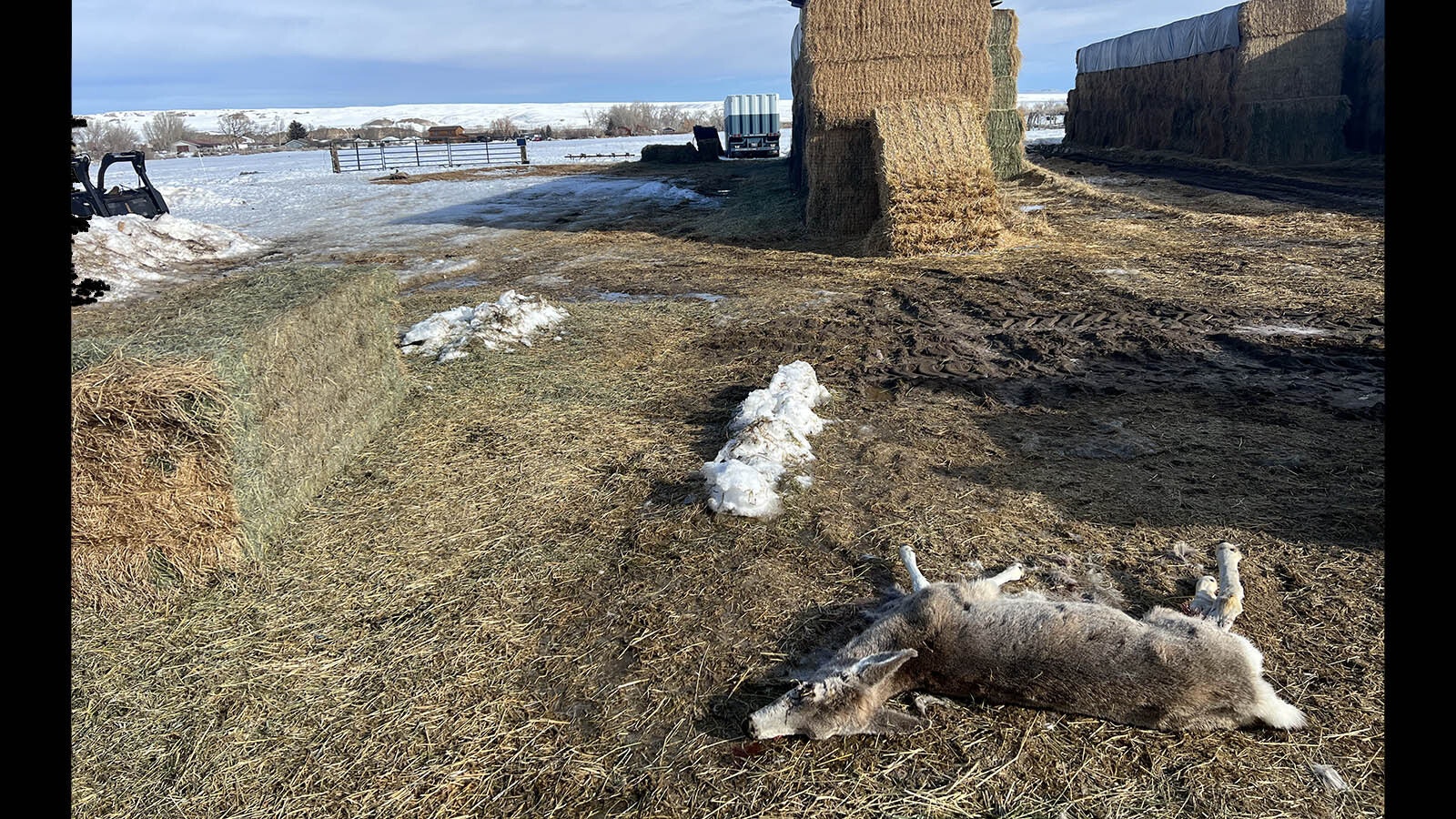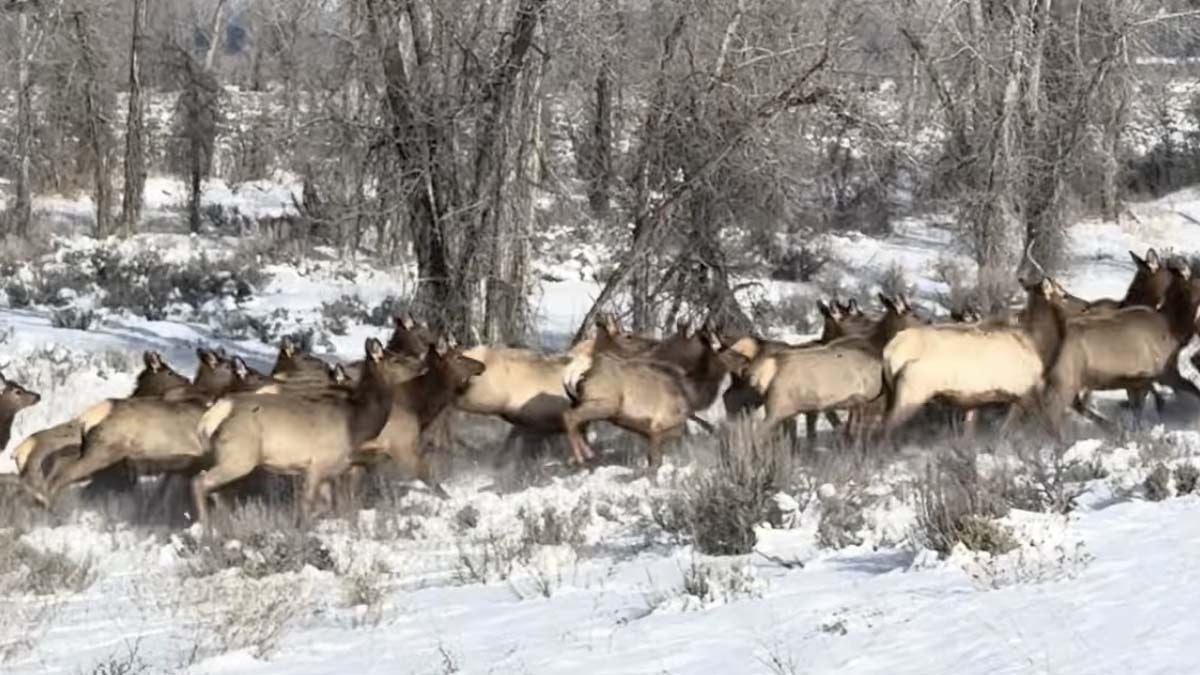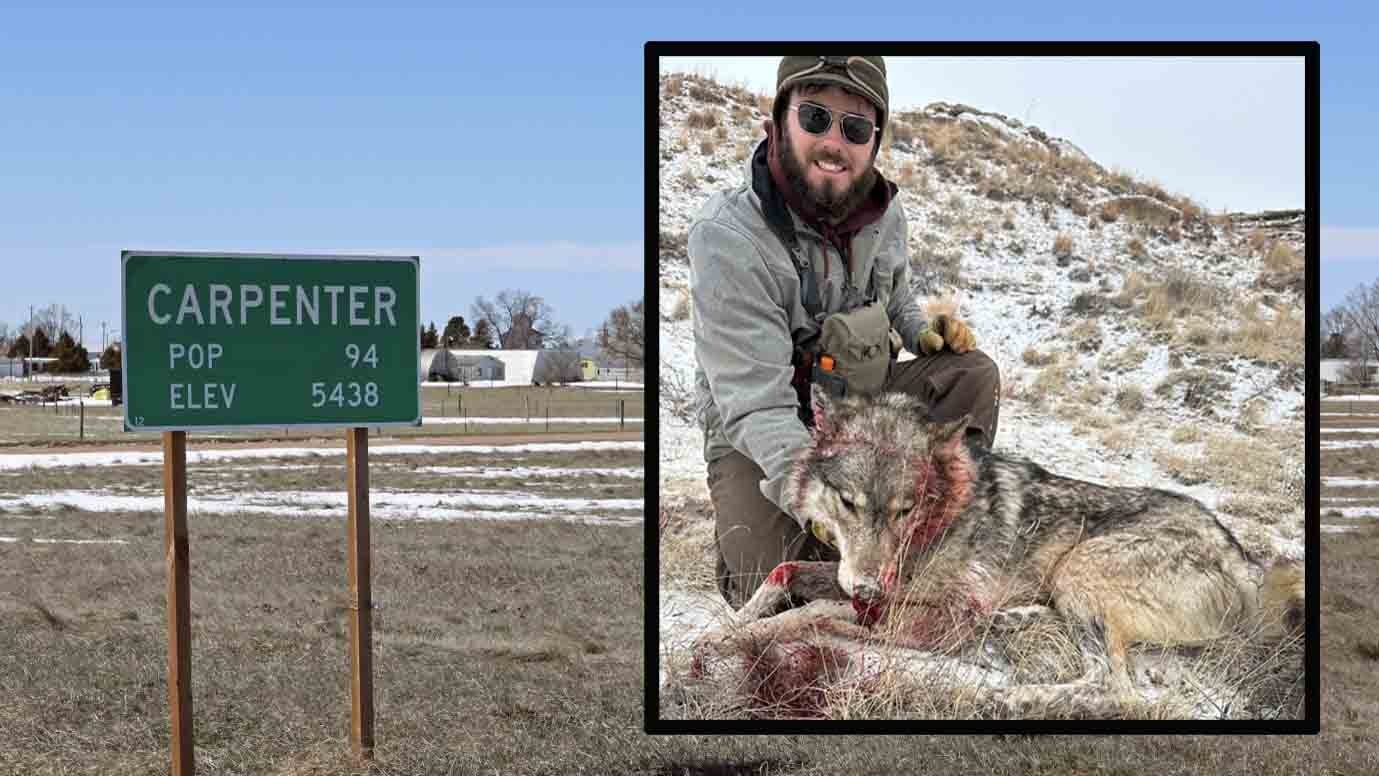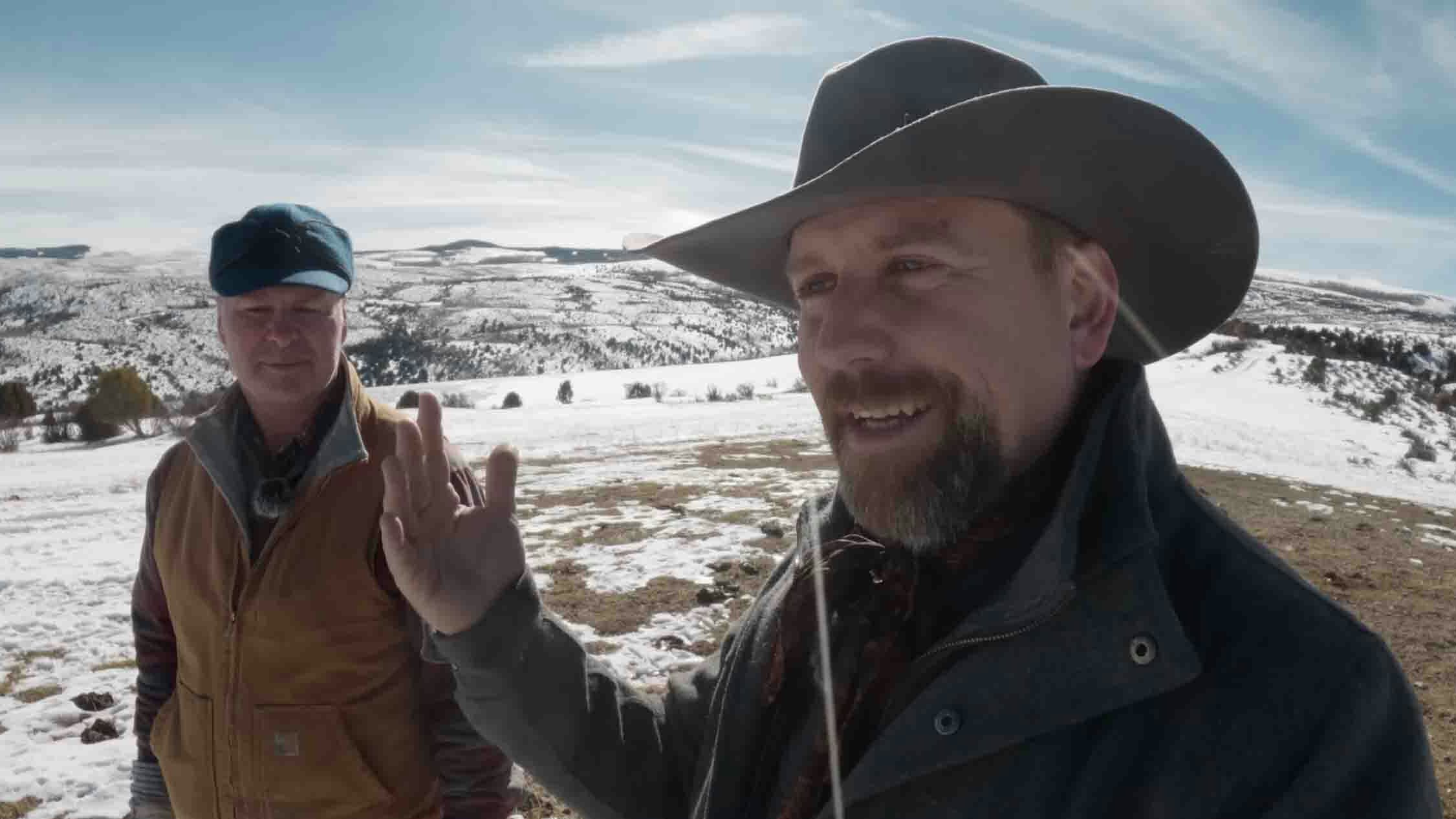As if this winter hasn’t already been brutal enough on Wyoming’s wildlife and mule deer aren’t facing enough challenges already, their carcasses could start piling up around haystacks.
That’s because the deer – desperately hungry because of a lack of natural forage – can eat themselves to death on hay, a wildlife biologist said.
“Mule deer have finely-tuned digestive systems. They have to eat the plant species that their guts are adapted to,” Daryl Lutz, told Cowboy State Daily. He’s the Wyoming Game and Fish Department wildlife management coordinator for the Lander region.
“That’s why feeding mule deer doesn’t work,” he added. “Often mule deer that are being fed die with a full stomach.”
An Agonizing Death
And it’s not a good way to go, according to information from the Montana Department of Fish, Wildlife and Parks. That agency also discourages people from feeding big game animals during the winter.
An FWP article, “Death By Feeding” describes an agonizing demise for those critters killed by peoples’ good intentions.
“The high-carb foods can cause an overgrowth of bacteria in the stomach that produces lactic acid, which leads to inflammation, absesses, and ulcers in the stomach wall,” the article states. “The inflamed wall can no longer absorb nutrients, and the lactic acid leaks from the rumen into the bloodstream, destroying cells and tissues and eventually causing death.”
Elk Stand A Better Chance
Mule deer are naturally adapted to a much narrower range of food options than elk are, Lutz said. And elk can also adjust to changes in their diet much more quickly.
And that’s a particularly big advantage during harsh winters like this one, he said.
“Elk can dig deeper into the snow, and eat different food sources. They can get nutrition from just about anything,” he said. “I sometimes joke with people, though it’s not quite a joke, that an elk could eat a pencil and get something out of it.”
Game And Fish Feeds Elk, But Won’t Feed Mulies
Even so, people shouldn’t start trying to feed hungry elk pencils, or anything for that matter, Lutz said. Emergency feeding should be done only by professionals.
And indeed, in some parts of Wyoming, it has been. Even elk herds are struggling so hard in parts of western Wyoming this winter, Game And Fish set up some feeding stations for them in places such as Star Valley.
With deer, it’s a different story, Lutz said.
Some agencies in other states have been feeding mule deer specially-formulated pellets to help them through the winter, but the Wyoming Game and Fish won’t go down that path, he said.
“Some jurisdictions, Colorado and Idaho in particular, have embarked on deer feeding programs,” Lutz said. “However, their survival rates, once they leave those feeding areas and try to re-adapt to natural food sources, aren’t that good.”
Game and Fish sees it as a game of diminishing returns, he added.
“It (the specialty food) is very expensive, and frequently, by the time we know we’re really having a bad winter, it’s often too late to start feeding,” Lutz said. “You can’t just start throwing food out and change that trajectory.”
Heartbreaking To Watch
So, as Game and Fish does, residents should also refrain from feeding deer, even as watching the animals suffer through a terrible winter pulls on the heartstrings, Lutz said. The strongest deer will still survive, even as many of the weaker ones perish.
“As hard as it is for us as people who have compassion and love wildlife, as hard it is to resist the urge to feed them, the best thing to do is to just let nature take its course,” he said.





